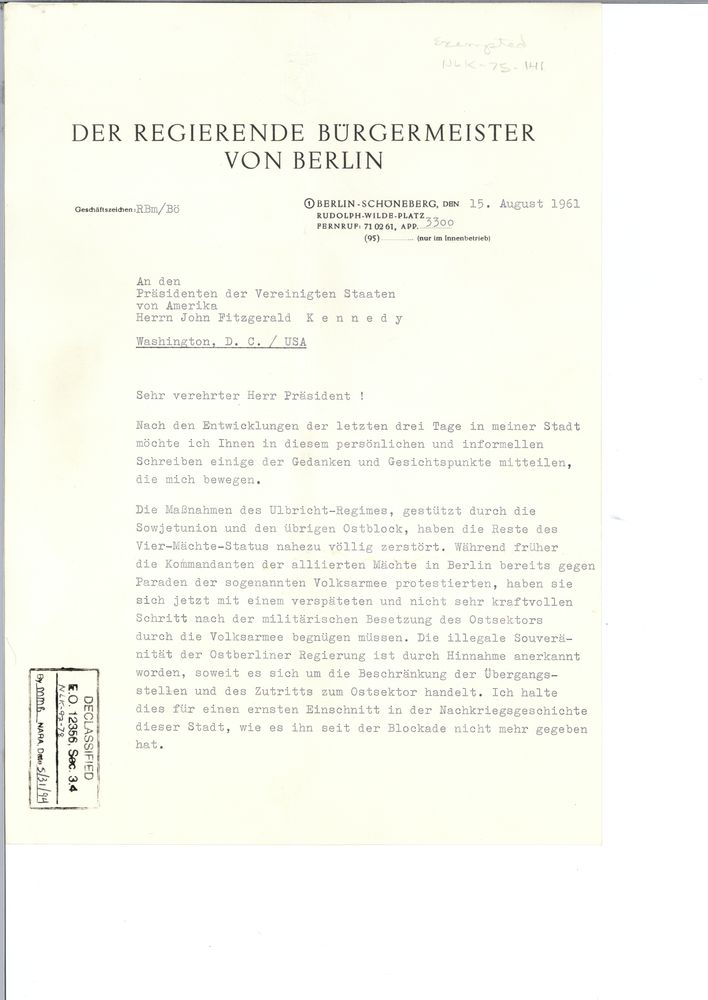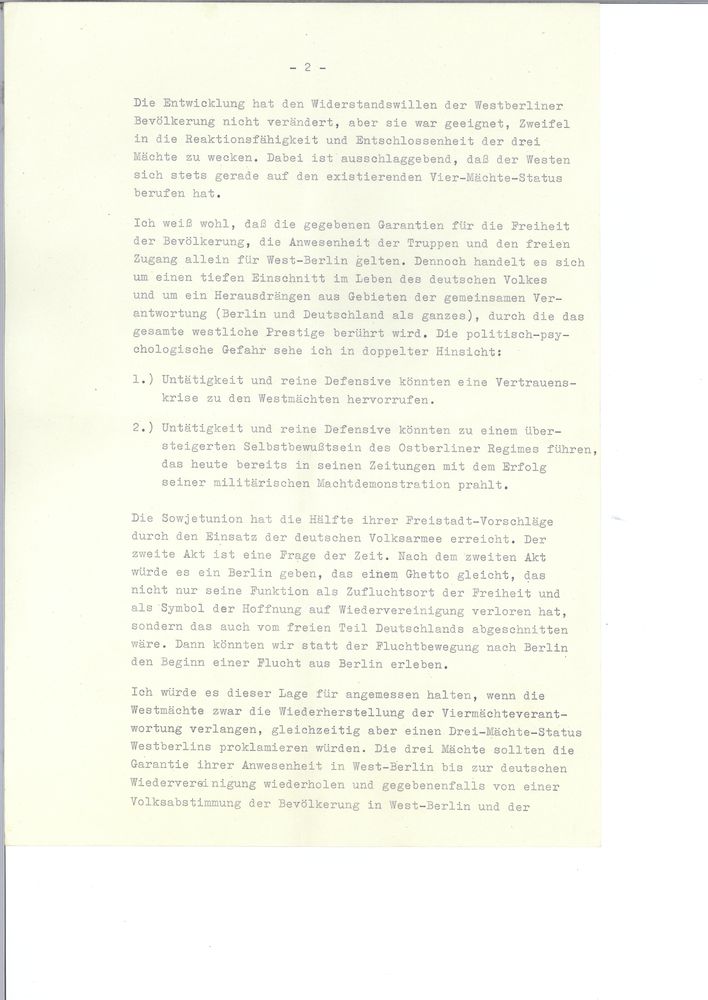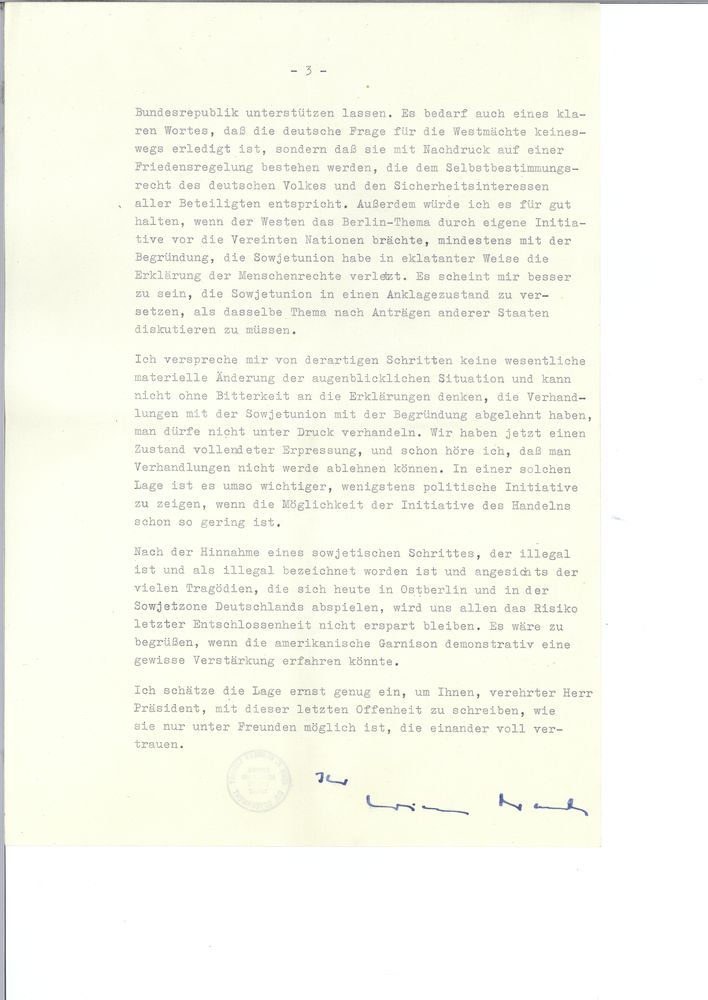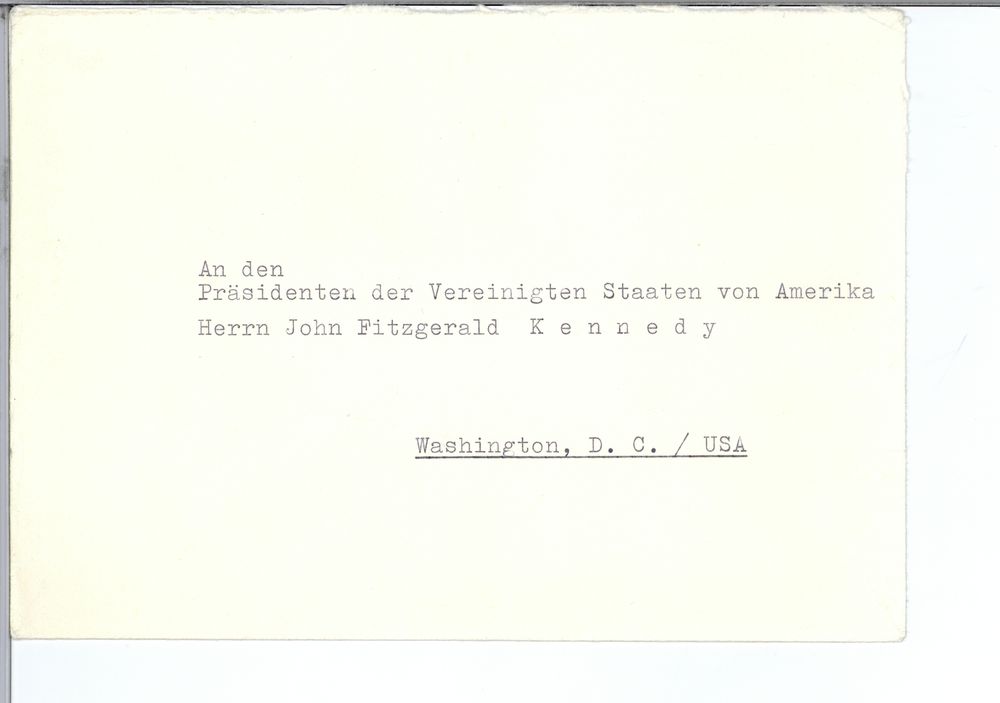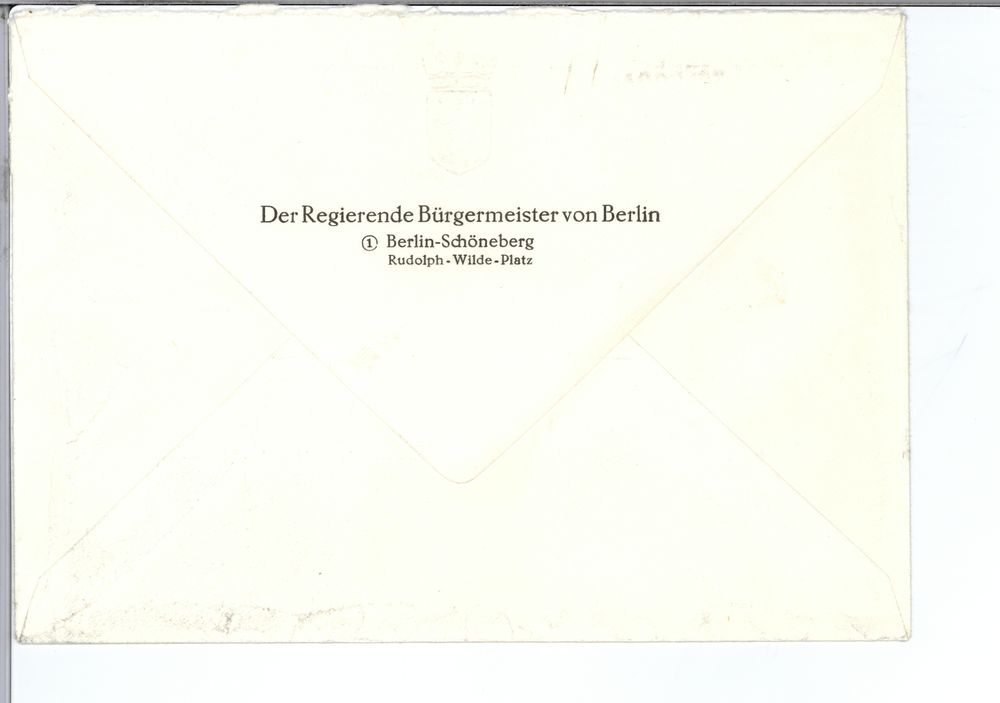Source
[…]
The measures taken by the Ulbricht regime, backed by the Soviet Union and the rest of the Eastern Bloc, have almost completely destroyed the remnants of [Berlin’s] Four-Power status. Whereas, in the past, commanders of the Allied Powers in Berlin even protested against parades by the so-called People’s Army [Volksarmee], this time they must content themselves with a belated and not very vigorous démarche following the military occupation of the Eastern sector by the People’s Army. By acquiescing to restrictions on border crossings and access to the Eastern sector, the illegal sovereignty of the East Berlin government has been acknowledged. I regard this as a serious turning point in the postwar history of this city, the likes of which has not been seen since the blockade.
This development has not changed the West Berlin population’s will to resist, but it has sufficed to raise doubts about the ability of the Three Powers to react resolutely. It is crucial that the West has always invoked the existing Four-Power status [of Berlin]. I am well aware that existing guarantees for the freedom of the population, the presence of troops, and free access apply only to West Berlin. Nevertheless, we are dealing here with a profound turning point in the life of the German people, and with a forced expulsion from spheres of joint responsibility, affecting Western prestige as a whole.
I see political-psychological danger in two respects:
1. Inactivity and a merely defensive posture could bring about a crisis of confidence in the Western powers.
2. Inactivity and a merely defensive posture could lead to exaggerated self-confidence on the part of the East Berlin regime, whose newspapers are already boasting about the success of its demonstration of military power.
By deploying the German People’s Army, the Soviet Union has already achieved half of its proposals with respect to giving Berlin the status of a Free City. The second act is only a matter of time. After the second act, Berlin would be like a ghetto that has lost not only its function as a refuge of freedom and a symbol of hope for reunification but has also been cut off from the free part of Germany. Then, instead of a flight to Berlin, we might experience a flight from Berlin.
In this situation, I would considerate it appropriate for the Western powers, while demanding the restoration of Four-Power responsibility, to simultaneously proclaim a Three-Power status for West Berlin. The Three Powers should reiterate their guarantee to remain present in West Berlin until German reunification and, if necessary, allow that guarantee to be backed up by a referendum put to the people of West Berlin and the Federal Republic. We also need a clear statement that the German question has by no means been settled for the Western powers, that rather, they will emphatically insist on a peaceful settlement corresponding with the German people’s right to self-determination and the security interests of all those concerned. Furthermore, I would consider it advisable for the West, through its own initiative, to bring the subject of Berlin before the United Nations, at least on the grounds that the Soviet Union has violated the Declaration of Human Rights in an egregious manner. To me, it seems better to place the Soviet Union under indictment than to have to discuss the same subject after a motion by other states.
I expect from such steps no substantive material changes to the current situation, and I think not without bitterness about that declaration rejecting negotiations with the Soviet Union on the basis that one should not negotiate under pressure. We now have a situation of perfect blackmail, and I am already hearing that it will not be possible to refuse negotiations. In such a situation, when the chances for initiative are already so small, it is all the more important to show at least some political initiative.
After tolerating a Soviet measure that is illegal and has been designated as illegal, and in light of the many tragedies that are taking place today in East Berlin and in the Soviet Zone, none of us will be spared the risks of ultimate decision. I would welcome it if the American garrison could be reinforced in demonstrable form.
[…]
Source: Letter from Willy Brandt to John F. Kennedy on the Building of the Berlin Wall (15. August 1961). Willy Brandt. Berliner Ausgabe. Published by Helga Grebing, Gregor Schöllgen and Heinrich August Winkler. Commissioned by the Bundeskanzler-Willy-Brandt-Stiftung. Volume 3: Berlin bleibt frei. Politik in und für Berlin 1947–1966. Edited by Siegfried Heimann. Bonn: Verlag J. H. W. Dietz Nachfolger GmbH, 2004, pp. 336–38. Available online at: https://willy-brandt.de/willy-brandt/publikationen/berlin-bleibt-frei-1947-1966/
